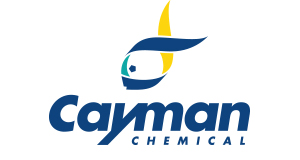MEGX (hydrochloride), CAS 7729-94-4
MEGX (hydrochloride), CAS 7729-94-4
SKU
CAY28019-5
Packaging Unit
5 mg
Manufacturer
Cayman Chemical
Availability:
loading...
Price is loading...
Shelf life (days): 1460.0
Formulation: A solid
Formal Name: N-(2,6-dimethylphenyl)-2-(ethylamino)-acetamide, monohydrochloride
Purity: ≥95%
Formula Markup: C12H18N2O / HCl
Formula Weight: 242.74484
CAS Number: 7729-94-4
Notes: MEGX is an active metabolite of lidocaine.{42862} It is formed via N-deethylation of lidocaine by the hepatic cytochrome P450 (CYP) isoform CYP3A4. Topical administration of MEGX (2% v/v) reduces thrombus formation in a hamster model of laser-induced microvascular injury.{42863} Plasma levels of MEGX following lidocaine administration have been used to monitor declining liver function in patients with cirrhosis.{42862}
Formulation: A solid
Formal Name: N-(2,6-dimethylphenyl)-2-(ethylamino)-acetamide, monohydrochloride
Purity: ≥95%
Formula Markup: C12H18N2O / HCl
Formula Weight: 242.74484
CAS Number: 7729-94-4
Notes: MEGX is an active metabolite of lidocaine.{42862} It is formed via N-deethylation of lidocaine by the hepatic cytochrome P450 (CYP) isoform CYP3A4. Topical administration of MEGX (2% v/v) reduces thrombus formation in a hamster model of laser-induced microvascular injury.{42863} Plasma levels of MEGX following lidocaine administration have been used to monitor declining liver function in patients with cirrhosis.{42862}

 Deutsch
Deutsch










